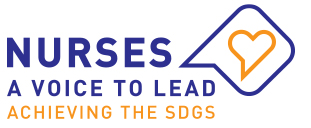Ebola Virus in Sierra Leone
Advocating and providing advice on how to engage and support improved health programmes in some of the most remote and hard to reach locations in the world ensures that global health initiatives reach those in need and contribute to the sustainable development goals at a global and local level.
In 2014, Sierra Leone captured worldwide attention due to the outbreak of the Ebola Virus. It has been estimated that 22,000 people contracted the virus and more than 9,000 people died. The disease had a devastating impact on the country with families torn apart, children losing their parents, civil unrest and food shortages.
The entire health system was on the verge of collapse. Large numbers of health professionals died from the disease. Clinics were full of patients who had contracted Ebola. This caused issues with access to health services for women giving birth and those affected by diseases such as malaria, pneumonia and diarrhea.
Amanda McClellan is a Registered Nurse from Australia and a Global Public Health Emergency Advisor for the International Federation of the Red Cross and Red Crescent (IFRC). From June 2014 to January 2015, she was deployed to West Africa, working across Sierra Leone, Liberia and Guinea. Amanda was responsible for leading Ebola-related health operations for the Federation, assuming the role of Technical Advisor for the operation. As part of this role, she supported the training and supervision of 200 clinical staff and 6000 volunteers.
Tragically, dead bodies are highly contagious. Improper burials and burial rituals were the catalyst of many infections. One of Amanda’s key responsibilities was the oversight of burying the dead in a way that was culturally sensitive and safe. Coaching and mentoring health staff is another major component of her role. Supporting local health workers and Red Cross and Red Cresent volunteers to be better prepared to respond to disasters and health emergencies is critical to support the increased resilience of communities to shocks. Engaging communities and working with them to build stronger health systems that can reduce hunger and improve health outcomes is a critical function of the health programmes of the IFRC.
In addition to this field work, a large part of Amanda’s role is representing the IFRC in coordination and technical forums ensuring the role of communities, volunteers and local health workers is being considered at the highest levels.

